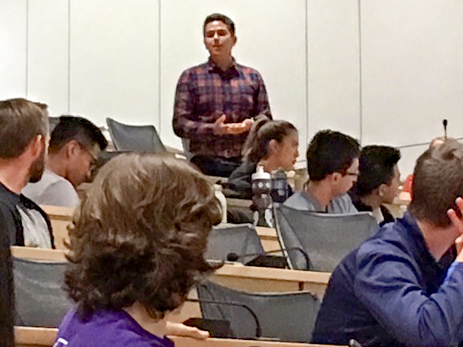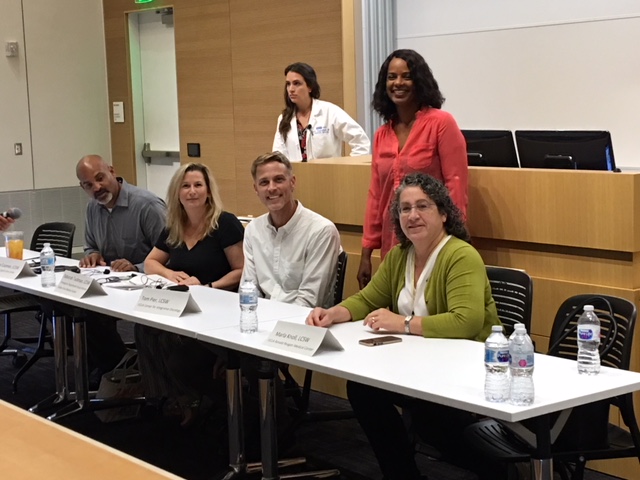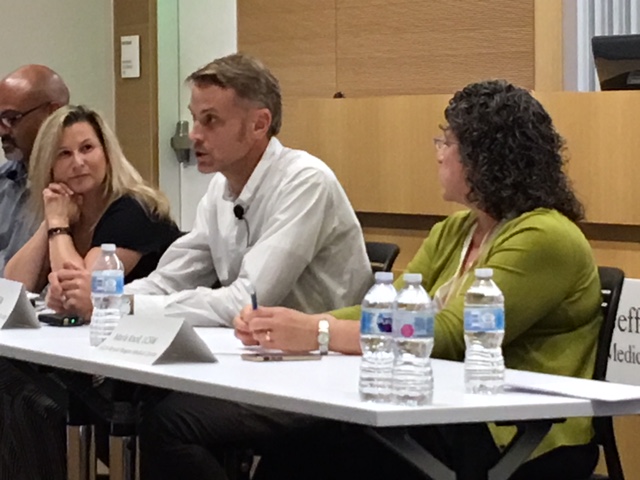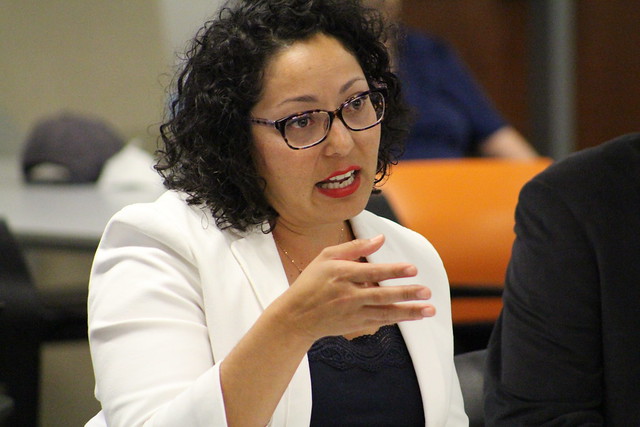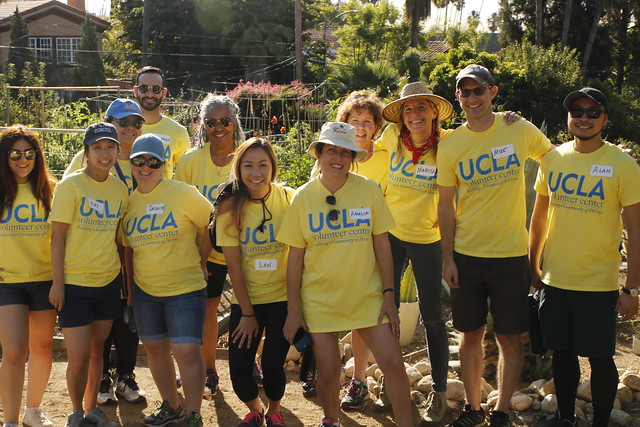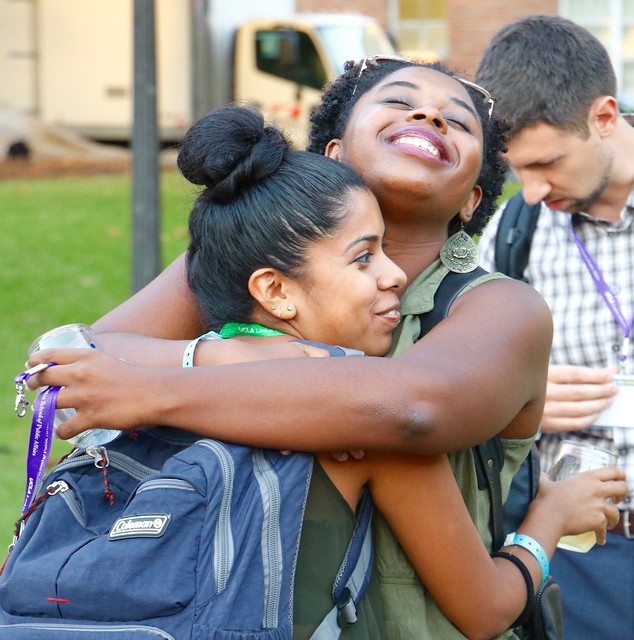Partnership of Social Workers and Medical Students Enters 2nd Year
Thanks to a partnership between UCLA Luskin Social Welfare and the David Geffen School of Medicine at UCLA, medical students at UCLA are again learning from social workers about the issues they face in medical workplaces. The project, now entering its second year, was initially put together by former Social Welfare chair Todd Franke; Gerry Laviña MSW ’88, director of field education; and Michelle Talley MSW ’98, a member of UCLA Luskin’s field education faculty and a licensed clinical social worker (LCSW). Read more about the effort.
Inside Look at State Politics
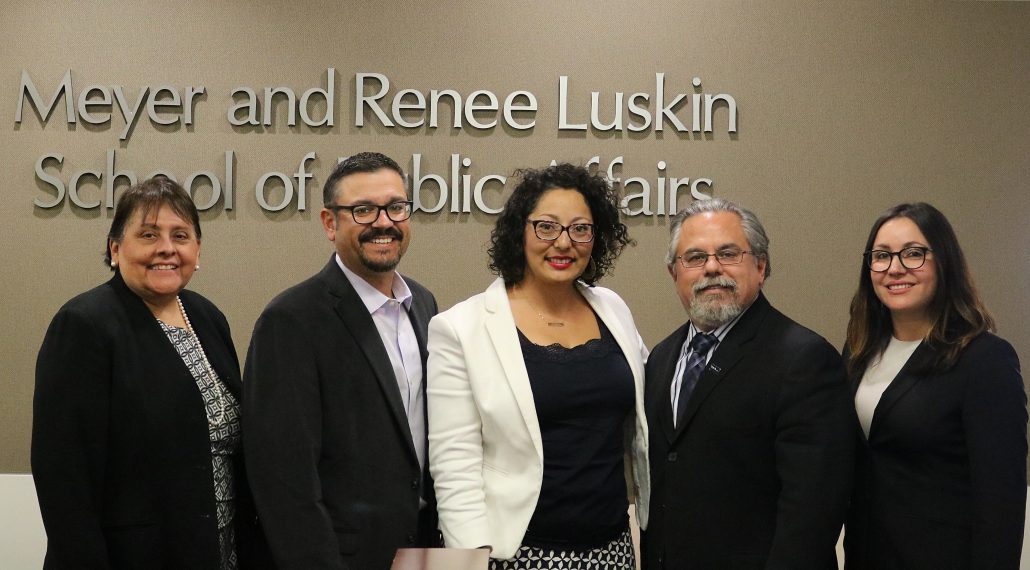
Cristina Garcia’s day at UCLA began with a meeting with Ramona Cortés Garza, executive director of UCLA State Relations, and LPPI’s leadership — Political Science and Chicana/o Studies Professor Matt A. Barreto, Luskin Dean Gary M. Segura and LPPI Director Sonja Diaz. They discussed how to leverage research to inform evidence-based policy solutions that are tailored to meet the needs of diverse Californians. Photo by Bryce Carrington
Cristina Garcia of the California State Assembly spoke about her efforts to make government more transparent during an Oct. 16, 2017, gathering at UCLA hosted by the Latino Policy and Politics Initiative. Garcia talked about the grassroots battle against political corruption in the 58th Assembly District in Southeast Los Angeles that eventually led her to seek office. “I’m an idealist at heart, and I do believe that we can have a democracy that works for us all.” Garcia talked about her three policy pillars: government transparency, women’s issues and environmental justice. She believes in standing up for the majority-Latino district she was elected to represent, but she envisions California as a place where every group of voters has equal input and access to the political system. She advocates for a more diverse and representative political system in which all Californians have an equal seat at the table. “For me, when I talk about where I want to see my society, we can’t shy away from race,” she said during a Q&A with students, staff and faculty from UCLA Luskin, the Division of Social Science, Grad Division, UCLA’s Early Academic Outreach Program, the Institute of Environmental Studies, and UCLA’s Government and Community Relations. “We can’t shy away from things that are real systemic barriers.” Although she faces hurdles when pushing many issues of importance to her constituents, she said that time and changing demographics are on her side. “Latino power is growing. We have had some losses and some steps back, but sooner or later we are going to be a majority,” Garcia said of California’s evolving population. “And we are also going to be a majority in those demographics in the State Legislature.”
Hover over the image below to access a Flickr gallery of photos.
At the Farm
Members of the UCLA Luskin community gathered at Wattles Farm on Oct. 7, 2017, to serve as leaders during UCLA’s Volunteer Day. Once on the farm in the heart of West Hollywood, this assorted group of Luskin faculty, staff and students organized and worked alongside UCLA undergraduates to participate in ongoing work there. Wattles Farm is an organic community farm whose mission is to provide the area’s diverse local population with a rare opportunity to participate in sustainable agricultural practices. Luskin volunteers not only got to spend a morning aiding with maintenance of a sustainable mainstay of Los Angeles, they also further united with UCLA and the greater Los Angeles community through conversations and life stories shared over snacks of oranges, granola and water. Hover over the image below to access a Flickr gallery of photos taken that day by Aaron Julian.
Welcome … Welcome … Welcome!
UCLA Luskin kicked off another academic year in late September during Welcome Week 2017, with events that included Orientation, Research Center lunches, EPA Training and the 7th annual Luskin Block Party. Assisted by a swarm of volunteers from throughout UCLA Luskin, Director of Events Tammy Borrero juggled hundreds of details to ensure the School was able to, in her words, “make a spectacular week come alive!” A sample of images from the week’s activities can be found on the Luskin Flickr feed, including this gallery of images from the Block Party:
Grant to Fund Research on Community Engagement
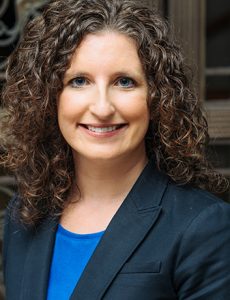
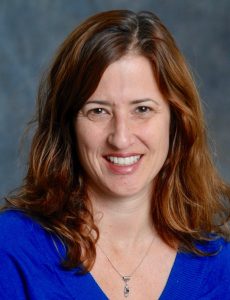 A National Service and Civic Engagement Research grant of $100,000 to Laura Wray-Lake and Laura Abrams of UCLA Luskin Social Welfare will contribute to research dedicated to increasing and strengthening the nation’s understanding and knowledge of civic engagement in America. Wray-Lake will be principal investigator and Abrams will be co-principal investigator for a study that aims to generate a more comprehensive understanding of what youth civic engagement looks like in urban contexts. This project will draw from interviews with urban youth as well as nationally representative survey responses. It will document how urban youth of color define their communities and describe their positive contributions. It will also identify obstacles that prevent youth from becoming more engaged in their communities, and researchers will study the kinds of opportunities and relationships that empower youth to become civically engaged in the face of adversity. UCLA is among 14 U.S. higher education institutions receiving Corporation for National & Community Service grants totaling more than $1.3 million. The federal agency oversees AmeriCorps and the nation’s volunteer initiatives.
A National Service and Civic Engagement Research grant of $100,000 to Laura Wray-Lake and Laura Abrams of UCLA Luskin Social Welfare will contribute to research dedicated to increasing and strengthening the nation’s understanding and knowledge of civic engagement in America. Wray-Lake will be principal investigator and Abrams will be co-principal investigator for a study that aims to generate a more comprehensive understanding of what youth civic engagement looks like in urban contexts. This project will draw from interviews with urban youth as well as nationally representative survey responses. It will document how urban youth of color define their communities and describe their positive contributions. It will also identify obstacles that prevent youth from becoming more engaged in their communities, and researchers will study the kinds of opportunities and relationships that empower youth to become civically engaged in the face of adversity. UCLA is among 14 U.S. higher education institutions receiving Corporation for National & Community Service grants totaling more than $1.3 million. The federal agency oversees AmeriCorps and the nation’s volunteer initiatives.
Wes Yin Coauthors Report on How Graham-Cassidy Plan Could Have Impacted Health Care in California
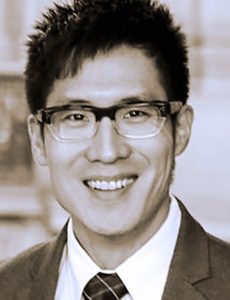 An analysis of the potential impact of a proposed amendment to the American Health Care Act of 2017, known as the Graham-Cassidy plan, found that the now-abandoned proposal could have triggered the near-term collapse of California’s individual health insurance market. The analysis, developed by John Bertko, chief actuary for Covered California, and UCLA Luskin’s Wes Yin modeled two scenarios that examined how California leaders might respond to a federal funding cut of nearly $139 billion between 2020 and 2027. In both cases, the consequences of the cuts would start taking effect in 2020 and quickly lead to millions losing their coverage. In one scenario, California’s individual market could experience what is commonly referred to as a death spiral, according to a news release issued Sept. 25, 2017, by Covered California. “The decline in the number of those receiving financial help to buy individual market coverage, while requiring health plans to provide coverage to those with pre-existing conditions, would very likely lead to the collapse of the individual market by 2021 if not before,” said Yin, an economist and coauthor of the analysis who is also an associate professor of public policy and management at UCLA Luskin.
An analysis of the potential impact of a proposed amendment to the American Health Care Act of 2017, known as the Graham-Cassidy plan, found that the now-abandoned proposal could have triggered the near-term collapse of California’s individual health insurance market. The analysis, developed by John Bertko, chief actuary for Covered California, and UCLA Luskin’s Wes Yin modeled two scenarios that examined how California leaders might respond to a federal funding cut of nearly $139 billion between 2020 and 2027. In both cases, the consequences of the cuts would start taking effect in 2020 and quickly lead to millions losing their coverage. In one scenario, California’s individual market could experience what is commonly referred to as a death spiral, according to a news release issued Sept. 25, 2017, by Covered California. “The decline in the number of those receiving financial help to buy individual market coverage, while requiring health plans to provide coverage to those with pre-existing conditions, would very likely lead to the collapse of the individual market by 2021 if not before,” said Yin, an economist and coauthor of the analysis who is also an associate professor of public policy and management at UCLA Luskin.
